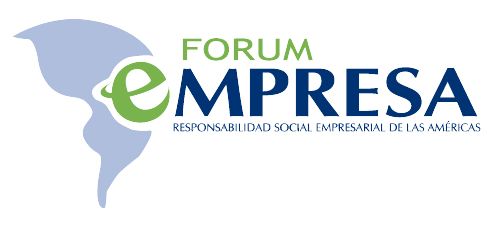If I Had a Crystal Ball: The Top 10 CSR priorities for 2013 - Part 2
Here is Part 2 of the list with the top CSR emerging issues for 2013. Items 6-10 follow below.
6-Personal Responsibility Management: How We Can Lead More Sustainable Lifestyles
Global population continues to grow and the need for more environmental resources will only get louder. We can point the finger at companies to lower energy consumption, preserve ecosystems and contaminate less, but we also have a role to play. Every day we make decisions about what to buy, how much water and energy to use, what to do with our trash, how much food to eat, etc. These decisions can support a sustainable lifestyle or go against it. If we want a better world for our future generations, then we need to make decisions that reflect our values. The good news is that there are more people developing personal responsibility plans who are also encouraging their families and friends to join in. We all need to develop personal responsibility plans so we can accelerate the collective awareness needed to make bigger changes.
7. Social Entrepreneurs Are Emerging Around the World
Social entrepreneurs are emerging at a rapid rate. They identify and solve social problems on a large scale and they see solutions where others see problems. Fast Company recently ran an article featuring seven of these young entrepreneurs who are finding ways to generate economic value and benefit society. Anand Shah’s company Sarvajal is one of the case examples. He is working to bring clean water to India through a network of water entrepreneurs, giving each a franchise to get started. Each of these franchisees sets up “water ATMs,” where rural Indians can go and see their water being purified and bottled.
8. Future Leaders in the CSR Movement: Who Are They?
During last year’s Rio+20 Summit business leaders’ voices stood out. Since then, business leaders around the world continued to share their vision to change the world. Here are some examples of the top-down leadership exhibited:- Paul Polman, CEO of Anglo-Dutch Unilever, championed a set of Sustainable Development Goals to replace the Millennium goals due to expire in 2015;- Mitch Jackson, VP of Environmental Affairs and Sustainability at Federal Express, just made the list of the 100 world’s most trusted business leaders because of his efforts to minimize Federal Express’s environmental footprint; -Zappo’s CEO Tony Hsieh’s is in the process of transforming downtown Las Vegas. Tony, who is well known for having created a culture that cares about people, is taking the culture from inside his company to the outside community. After relocating Zappo’s corporate headquarters from Henderson, Nevada to downtown Las Vegas’ old City Hall building, Tony plans to integrate the campus with the community so that Vegas becomes the smartest city in the world. Unfortunately, the number of inspiring leaders is still low. In 2013, we hope to see more forward-looking leaders who can push radical change.
9. How Is the Food industry Preparing to Feed 9 billion People in 2050?
UN predictions tell us that there could be 9 million people to feed by 2050. This will put increased pressure on the resources needed to produce food, including land, water and energy, and the efforts made at reducing food wastage. Currently 30-50% of food produced never gets to human consumption due to harvesting and transportation problems at the farmers level in developing countries and consumer and retailer behaviour in developed countries. Wasting food means not only losing precious nutrition but also resources like water, land and energy. The Institution for Mechanical Engineers studied this issue and recently released a report entitled “Global Food Waste Not, Want Not” with recommendations for governments. They suggest the implementation of policies to change consumer expectations in developed countries and waste minimization techniques in developing countries. Although we are far from the year 2050, the planning to tackle this issue need to start now.
10. Have SMEs Been Marginalized in the Sustainability Debate?
Although SMEs represent more than 90% of global businesses and have a significant impact on industrial contamination, they are lagging behind on CSR efforts. In the US, only 29% of SMEs have introduced CSR activities into their business compared with 46% of large companies. This is troublesome for the Association of Chartered Certified Accountants (ACCA). They just released a paper entitled”Embedding Sustainability in SMEs” where they argue that SMEs need to understand the financial gains they will obtain by implementing CSR initiatives. According to the paper, SMEs should follow five steps: A) commit the business publicly to take action B) assess the business’ impact C) set targets for reducing impact D) act tom reduce impact and E) publish business policies and actions. Hopefully we will see more efforts in 2013 at engaging SMEs in the sustainability debate.













